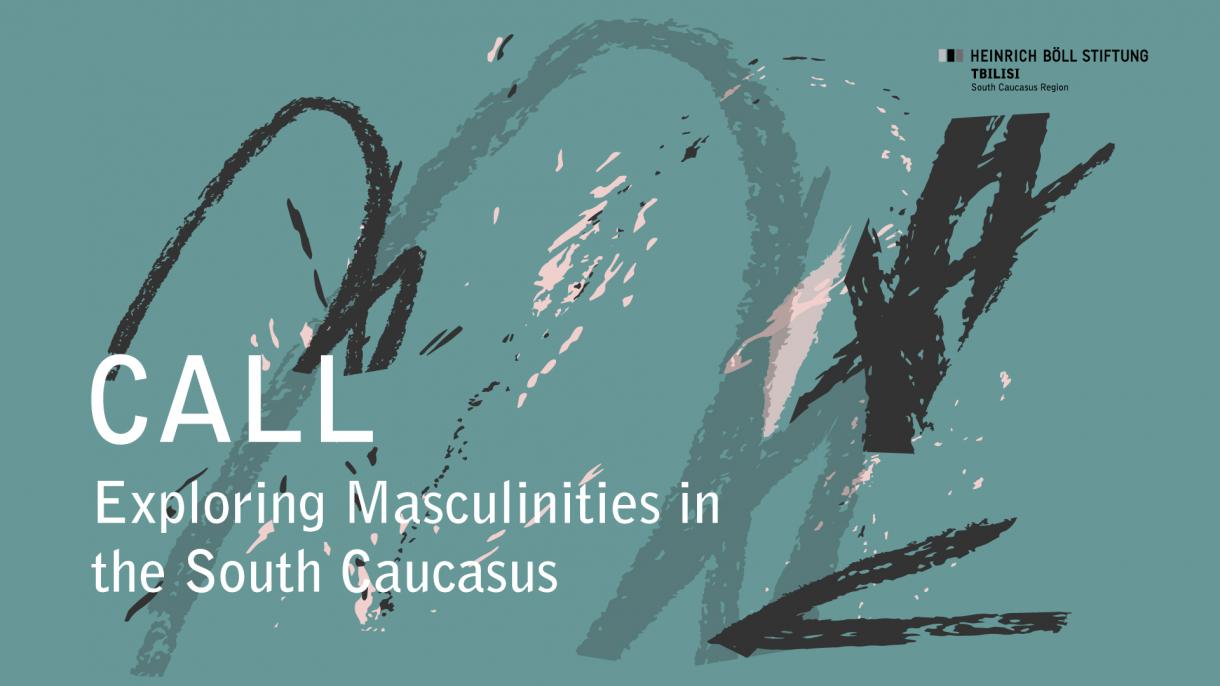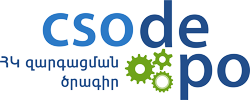Հարավային Կովկասում առնականության հասկացությանն առնչվող հետազոտություններ անցկացնելու բաց կանչ Հայնրիխ Բյոլ հիմնադրամի կողմից (անգլերեն)

The call is open for everyone - participants of all genders, professions, and professional levels, such as students, researchers, cultural professionals, fiction writers, poets, illustrators, photographers, etc. The call is intended for participants at all stages of their specialization and does not require any specific professional knowledge of the topic.
About the project
The Heinrich Boell Foundation South Caucasus implements the project to reflect on, discuss, and analyze the different forms of masculinities in the South Caucasus and how they coin the experiences of men and other genders in the South Caucasus and shape entire societies. Moreover, the project scrutinizes how these masculinities interact and are linked to politics and power relations. The contributions will be collected in a multi-format book set to comprise diverse perspectives on masculinities in the region.
Contributions can feature various mediums and formats, exploring masculinities from different angles. We suggest the following formats, but also encourage submissions to pursue alternative ideas:
-
Personal or policy-oriented articles/blogs
-
Academic research articles
-
Poems
-
Fiction stories
-
Photo projects
-
Illustrations
Selected participants will participate in a two-day online workshop (presumably in early July) and continue to work on their contributions in discussion with other participants, the project team, and the editors (the book will have three country editors and an editor-in-chief).
Sound knowledge of English is needed for participation in the project in order to communicate with the project team and editors and take part in the workshop.
Thematic directions
Contributors should freely choose a relevant thematic angle and precisely describe their idea and concept in the submission. Submissions can be related to:
-
Militarism and the army
-
Religious institutions
-
Family (i.e., inter-generational issues and fatherhood)
-
Politics
-
Sexuality
-
Sports
-
The "street" (i.e., men's communities, criminal culture)
-
The LGBTQ community
-
Arts and the cultural sector
-
History
-
Violence
-
Urban and rural life
-
Coming of age/youth and youth cultures
-
Aging
-
Changing/transforming masculinities
Submissions may go beyond these suggestions, and contributors are free to combine and reformulate these thematic areas.
Submission
Submitted concepts should describe the idea which will be further developed during the project. The concept shouldn't exceed 300 words and must be written in English (final contributions to the book should be made in Armenian, Georgian, or Azerbaijani and will be translated into English – the book will be multilingual). Applicants should submit their concept, CV, and relevant documentation of their work (portfolio, publications, previous photo project, etc.) to [email protected] by Friday, June 15, 18:00, indicating "Masculinities in the South Caucasus" in the subject line (max. total attachment size: 25 MB). In case of questions, contributors should use the same e-mail address.
Applicants will be informed about the call results in due time. Successful applicants will receive an honorarium to develop their concept further and finalize their contribution to the book.
About us
The Heinrich Boell Stiftung/Foundation (hbs) is a Green think tank and an international policy network. It is part of the Green political movement that has developed worldwide as a response to the traditional politics of socialism, liberalism, and conservatism.
The South Caucasus Regional Office of the hbs was established in 2003 in Tbilisi, Georgia. The Foundation's main goal is to contribute to the democratization process of Georgia, Armenia, and Azerbaijan.
We promote gender equality, democracy, human rights, and social and environmental justice. In line with the hbs guiding values, we support initiatives that form and strengthen an inclusive political culture that opens room for public participation in democratic development, socio-ecological transformation, and gender democracy. We are part of the global civil society and support local grass-root initiatives that strive to build participatory and just societies.
